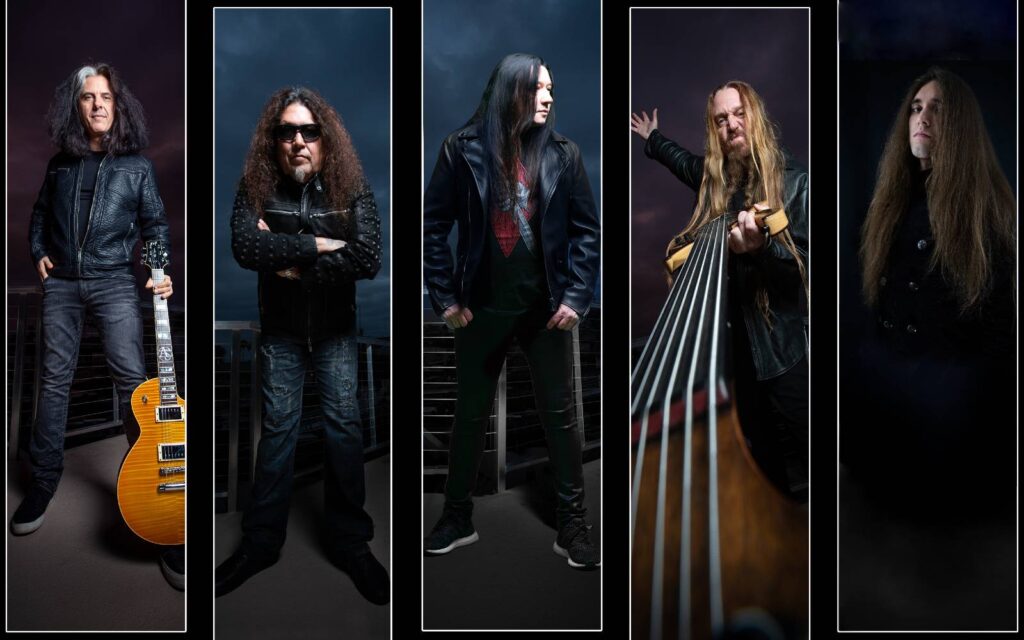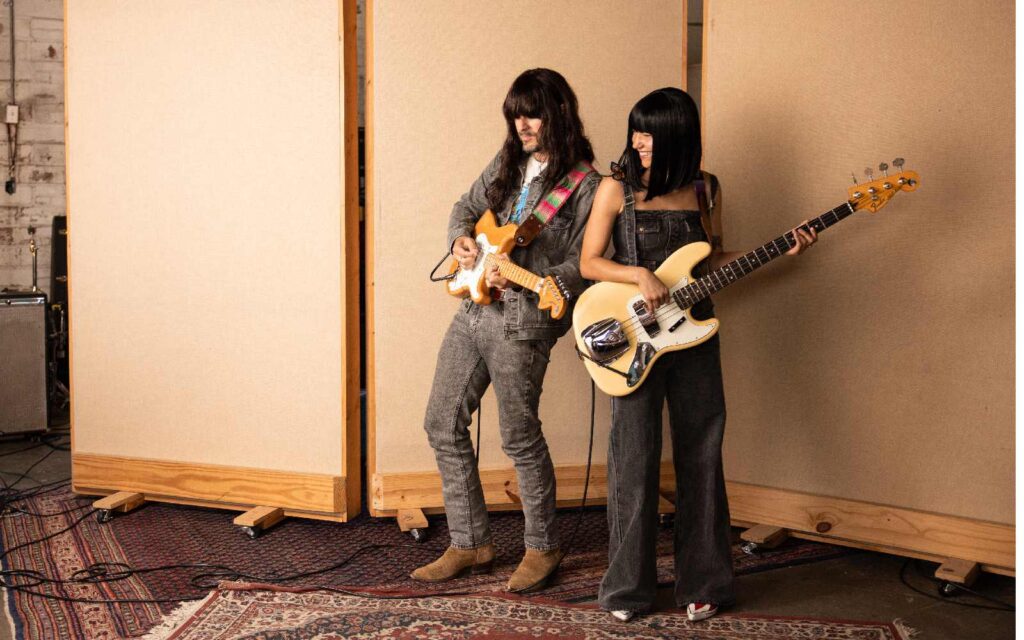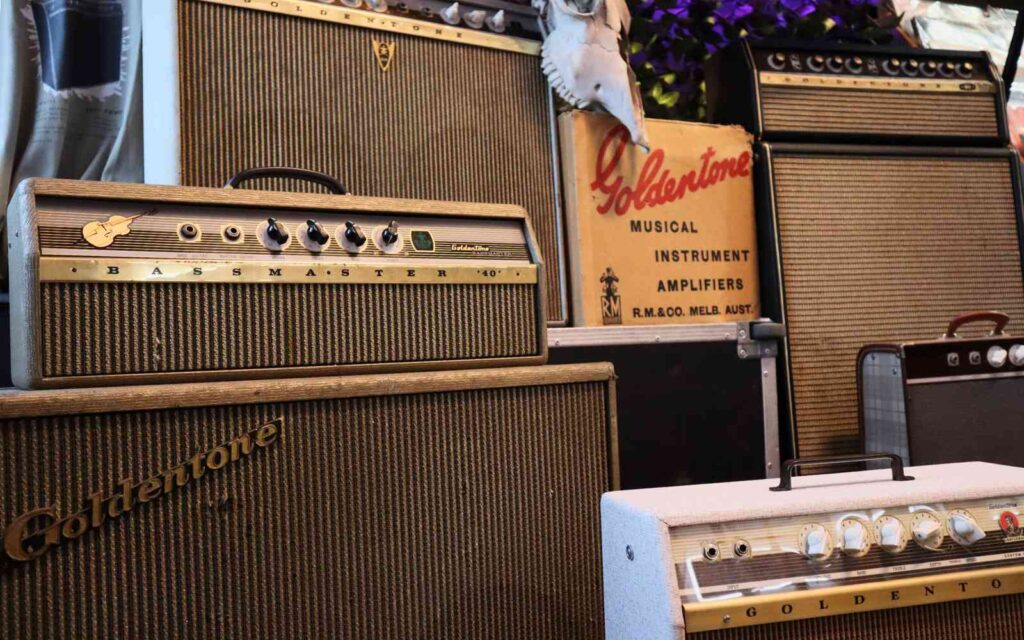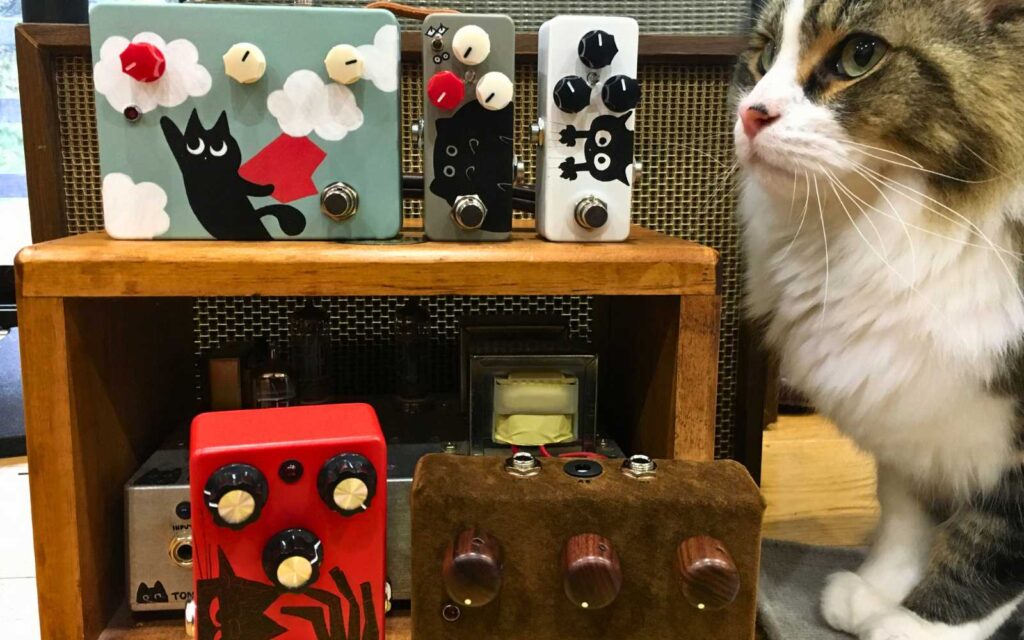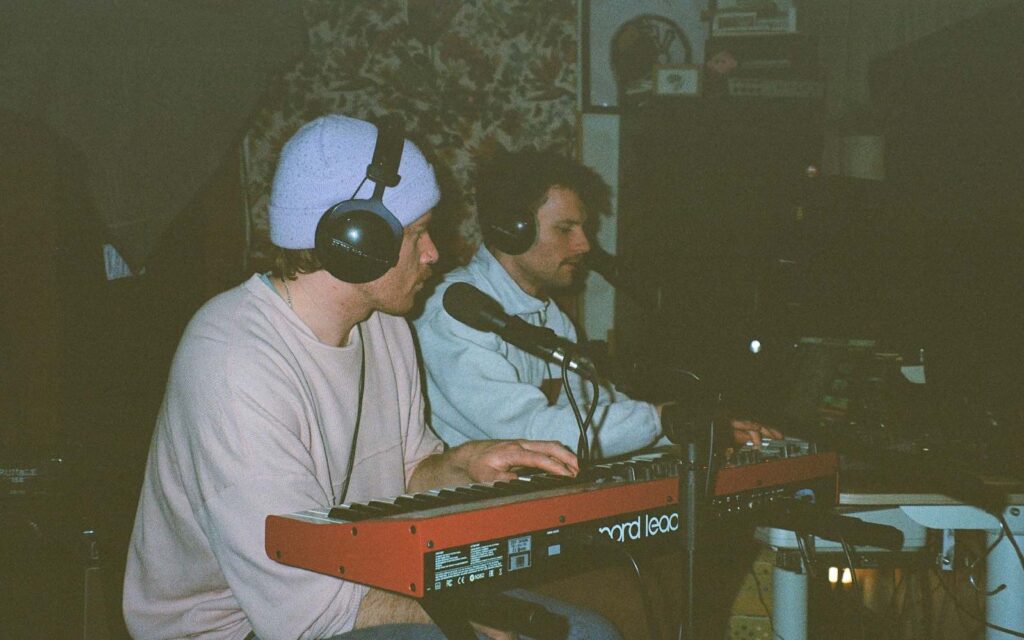“I entirely agree with that,” Bordin says. “And you only get that with honest contributions from every side, that’s how it becomes something more. Like cooking, I guess. Someone might have salt, someone might have pepper. The band is more powerful than we could ever be on our own. I believe that very much.” “For me, I think it’s more distinct,” Bottum muses. “You’re coming back in to a situation like this with a lot more experience, whether it’s musical or otherwise. And that was a big part of it for me at least. I don’t think I thought of it in terms of the Faith No More approach.”
“You work on music that resonates with you, or doesn’t,” says Hudson in something of a whisper. “You try and refine the things that do seem to work, and if they can take on a shape and life of their own, it will take off from there. None of us were really worried about expectations. We’re not that kind of band, I think. There was an obvious need to stay focused on the material, that was the important thing. And this was unique in that I think the band kept the information to themselves.”
“Yeah. I think there is something unique there, because Faith No More is a product of each of us,” Bordin concludes. “We did this really with nobody around, with nobody knowing. Nobody outside was involved, so I could take my past experience directly into the studio and was able to do tracks, make them clean enough to proceed … and it felt great. I loved it, and I knew it was going to be great, and I can’t explain how excited I was to hear how it was going to flesh out. That’s all I cared about.”
After thirty-four years, the band is well and truly a unique beast; crafting music by instinct and exposure, drawing influences from decades of disparate genres and experience. While there has always been a vivid, if cryptic commentary on the world at large in the group’s catalogue, within Sol Invictus this exploration of life, death, and the dervish in-between may never have been so pronounced.
“I think there’s a spiritual quality to what we did here,” Bottum considers, “but it’s so unorthodox and so twisted, it comes from such a fucked up perspective, that I don’t think it’s even relatable to anyone outside the five of us. We put it out there, but it’s so weird. Billy and I were raised Catholics from an early age, so now we have all this damage from nuns, this whole weird world of spirituality that has seeped in to what we do. But it’s nothing that we pull from directly, or at least consciously. But it’s a big world out there, and I tend to think of a lot of things having a spiritual side, if an an unorthodox way.”

“But wouldn’t you say,” Bordin turns to Bottum, “that the search for meaning, the search for faith or belief, is something that man is naturally drawn to? Whether that’s believing in a motorcycle gang or believing in tattoos, or finding your sense of soul in a bottle. People are always looking for something. I think it’s universal. It’s a general, everyday person thing.” Hudson nods. “It’s the human condition.”
One of the most striking aspects of the album’s development was the absence of cavernous studios or outside meddling; the songs are unadulterated, a true testament to where Faith No More has found itself after all this time and without the baggage of how people will respond. Part of this creative isolation, however, could only be attained with leaps in technology far removed from the days of Album Of The Year. Working in a digital landscape allows a connectivity and immediacy unknown to those early days, though it can come with a price.
“Being able to share music no matter where we are has definitely been a plus,” Bottum acknowledges. “That technology is great. I can be in New York City and so easily send music back and forth. But otherwise we weren’t all that connected. Billy [Gould] and I started Twitter accounts when we began the reunion tour, and that’s one way we addressed speaking to our public. That was a healthy way to address the world, and that aspect is one route. But within this record, technologically it was just what could be used in the space of the music. We only ever shared between ourselves.”
“When it comes to making music,” Hudon says, “I think the fundamentals have stayed the same. Because we recorded it in one room, we didn’t have to go into a studio with some massive infrastructure. If we’d had to do that, it would have changed things because it would have put us on a schedule. A lot of this recording was also writing and arranging at the same time, you know? In that regard, the technology helped because it allowed us to have more control, and see what we had right away. Like taking a digital photo, you can see it right away, you don’t have to send it away and wait for it to be developed. But that’s physical technology, that’s nothing that really touches on social media or being at all conscious of what kind of response the music might have.”
“Sometimes I might speak out to people online. But honestly,” Bordin laughs, “I prefer the cave. I know some people look at the comments on their Facebook page or whatever, but it just makes me really anxious. I can’t go there, I can never listen to what people say about us.”
“I don’t mind sharing what we’re doing, sharing pictures of what we’re doing as a band. But I can’t be on the receiving end,” Bottum mockgroans. “I don’t want to know people’s comments.” “And it’s not really going to change what we’re doing anyway,” Bordin insists. “The only assurance is that we’re going to try and give you our best, what we think is our best. Somebody who is mean spirited, talking shit or just joking, it’s not going to drive us anywhere. Whoever we are, whatever we do, we’re going to give you our best. That’s what we do. You can get somebody else’s best somewhere else. This is what we do.”
BY ADAM NORRIS
COVER & PHOTO CREDIT: REBECCA HOULDEN
Sol Invictus is out now through Reclamation Records / Ipecac


